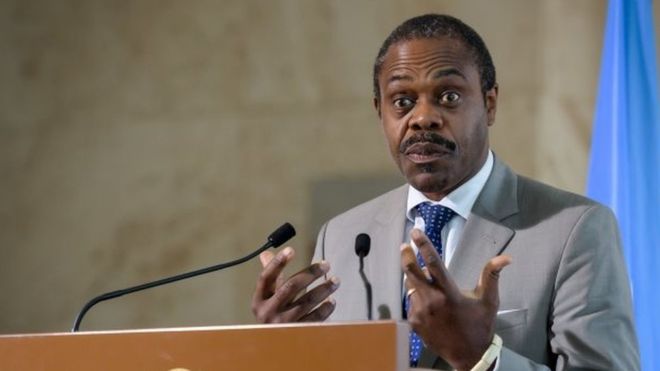Why Ilunga resigned
Mr Ilunga in his letter to Mr Tshisekedi had criticised the decision to remove him as head of the Ebola response team, and replace him by a committee “under your direct supervision”.
“As a result of your decision to place the response to the Ebola outbreak under your source supervision…I hereby submit my resignation as health minister.
“As in any war, because that is what this is, there cannot be several centres of decision-making for risk of creating confusion,” he said.
He said members of that committee had interfered with his work in recent months.
He also condemned “strong pressure exercised in recent months” to use a new Ebola vaccine advocated by some aid agencies and donors.
He said the current vaccine was the only one with clinically proven effectiveness.
Outbreak
The DRC, since August last year, has been witnessing an outbreak of Ebola.
It is is the latest outbreak – the second-largest ever- and is affecting two provinces in the country, North Kivu and Ituri.
The outbreak has killed more than 1,700 people over the past year leaving dozens hospitalised.
Unfortunately, the country is yet to contain the spread of the disease.
There has been urgent concerns about the spread of the disease outside DRC as the disease was recently diagnosed in Goma, a city of almost two million and a busy entry point. The town sits on the Rwandan border.
International emergency
Based on the new trend, the World Health Organisation (WHO), last week declared the outbreak an international health emergency.
The UN health agency declares an emergency when a public health event, such as an outbreak, becomes extraordinary because it constitutes a risk to other countries, and when a coordinated international response is required.
An Ebola epidemic devastated parts of West Africa from 2014 to 2016, and killed more than 11,000 people.
It also affected Nigeria when a passenger from Liberia ‘imported’ the disease into the country.
How effective is the vaccine
Based on the magnitude of the outbreak, WHO in collaboration with other development partners working on curtailing the outbreak has been pushing for vaccination as a means of controlling the spread of the disease.
According to WHO, the vaccine is 97 per cent effective and more than 161,000 people have been given.
However, not everyone is vaccinated as there are conspiracy theories about the vaccine.
The vaccine was developed during the epidemic in West Africa and has been available throughout the latest outbreak.

 The health minister of the Democratic Republic of Congo (DRC), Oly Ilunga, has resigned in protest over the handling of the Ebola outbreak in the east of the country. According to the BBC, the minister, in his resignation letter, condemned a decision by President Felix Tshisekedi to replace him as the head of the Ebola response team.
The health minister of the Democratic Republic of Congo (DRC), Oly Ilunga, has resigned in protest over the handling of the Ebola outbreak in the east of the country. According to the BBC, the minister, in his resignation letter, condemned a decision by President Felix Tshisekedi to replace him as the head of the Ebola response team.




